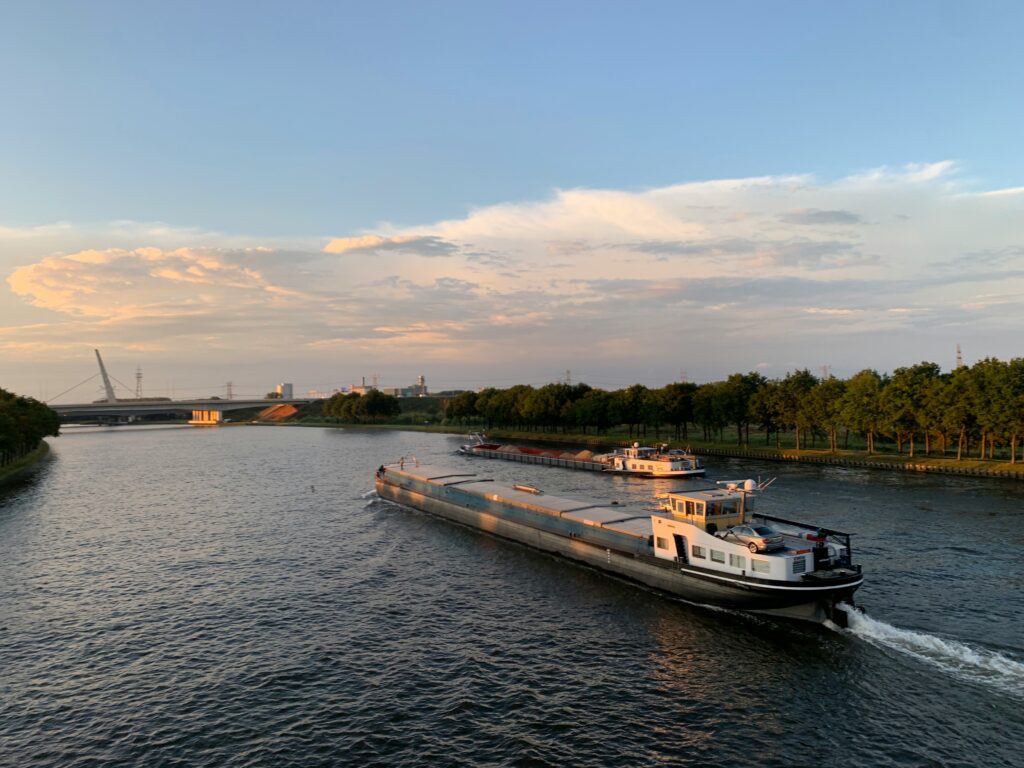How Ships Can Optimize Bunker Consumption Using Ocean Currents

Introduction The global shipping industry is facing a dual challenge: rising bunker costs and mounting pressure to reduce carbon emissions. With maritime transport responsible for nearly 3% of global greenhouse gas emissions, the push for sustainability is stronger than ever. Amid advanced fuel-efficient engines and cleaner fuels, one of the most natural and cost-effective solutions […]
Autonomous Bunkering Barges: The Next Frontier in Fuel Delivery

Imagine a fuel barge gliding effortlessly across the water, operating quietly and efficiently. There’s no captain issuing commands or crew managing cumbersome hoses. Instead, sophisticated sensors monitor the environment, AI determines the safest path, and robotic arms facilitate fuel transfers. This concept is not a distant dream; the shipping and fuel delivery sector is already […]
Fuel Lubricity and Engine Compatibility: Overcoming Operational Hurdles in the Post-IMO 2020 Era

The maritime industry has undergone a significant transformation in recent years, primarily driven by the implementation of the International Maritime Organization’s (IMO) 2020 sulfur cap regulations. These regulations, which limit the sulfur content in bunker fuels to 0.5% from the previous 3.5%, have ushered in a new era of fuel use for vessels. While these […]
The Dynamics of VLSFO Pricing: Trends and Implications in the Global Maritime Sector

Introduction Overview of VLSFO Very Low Sulfur Fuel Oil (VLSFO) is a type of marine fuel oil that contains a maximum sulfur content of 0.5% by weight. It was developed in response to stricter environmental regulations aimed at reducing sulfur emissions from ships. Before the introduction of VLSFO, ships primarily used High Sulfur Fuel Oil […]
Intelligent Bunker Procurement Systems Using AI Analytics

Introduction The maritime sector is increasingly adopting artificial intelligence (AI) and advanced analytics to streamline operations, including the acquisition of bunker fuel. As bunker fuel represents a substantial portion of shipping companies’ expenses, leveraging intelligent bunker procurement systems empowered by AI can significantly reduce costs and enhance operational efficiency. Traditionally, bunker procurement involved a blend […]
Exploring the Fundamental Differences Between Dual Fuel and Conventional Engines

Introduction The maritime industry faces a crucial moment as it seeks propulsion solutions balancing tradition and innovation, with shipowners increasingly prioritizing performance, efficiency, and environmental responsibility. While conventional ship engines have long been the standard, the emergence of dual fuel technology presents a promising alternative, offering enhanced flexibility and sustainability. This article delves into the […]
Slow steaming in the maritime industry and its implication on bunkering

Slow steaming, a prevalent maritime practice, involves ships operating at reduced speeds compared to their maximum capacity, resulting in significant reductions in fuel consumption and emissions. This strategy gained prominence as a response to economic pressures and environmental concerns within the shipping industry. Understanding Slow Steaming: Slow steaming, a response to high fuel costs and […]
Radio-Frequency Identification (RFID) in Bunkering: Tracking Fuel Quality
Radio-Frequency Identification (RFID) technology has ushered in a new era of efficiency and safety in the oil and gas industry, particularly in the context of bunkering. With its ability to track, monitor, and ensure compliance, RFID has become an indispensable tool in safeguarding fuel quality throughout the bunkering process. Innovative RFID systems have transformed the […]
The Transformative Role of AI in Bunkering Operations

Introduction: The bunkering industry, a critical part of the global shipping industry, has traditionally relied on established practices and human expertise to procure and distribute fuel. However, as industries around the world embrace technological advances, artificial intelligence (AI) is making waves in the bunker industry, promising to streamline operations, increase efficiency and solve environmental problems. […]
Examining the impact of blockchain technology on the efficiency and functionality of marine bunkering operations

Introduction Marine bunkering, the process of supplying ships with fuel, is a critical aspect of the maritime industry. Traditionally, this industry has been characterized by manual processes, paperwork, and inefficiencies that can lead to errors, disputes, and delays. In recent years, blockchain technology has emerged as a disruptive force with the potential to revolutionize various […]

